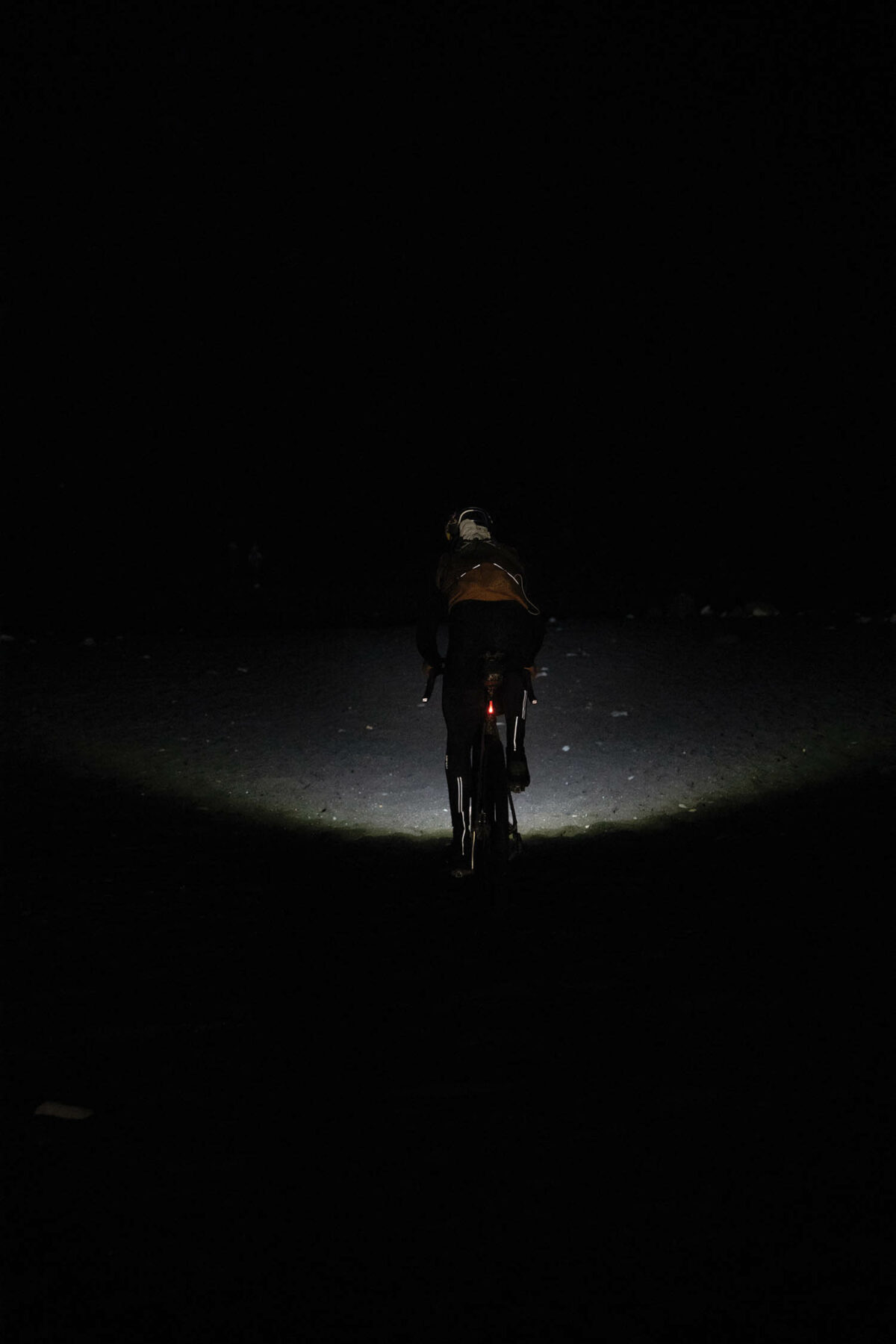A Conversation with Payson McElveen
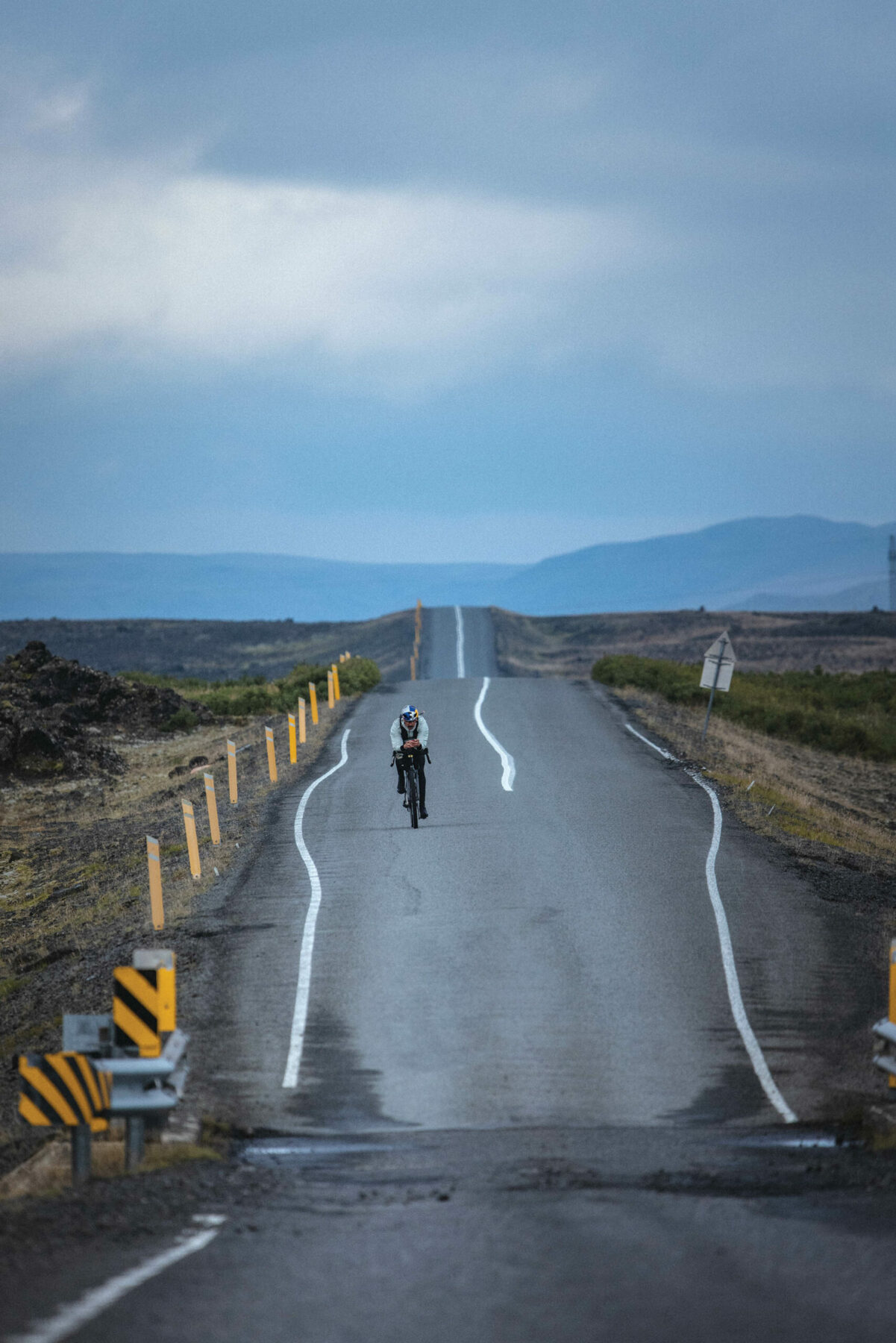
Payson McElveen dipped the back tire of his modified bike into the northernmost coastal waters of Iceland in September of 2021. McElveen traversed the interior of Iceland to reach the southern coast in 19 hours and 45 minutes. This set the record for the fastest bikepacking time across the entire frozen country.
Austin native McElveen, who now lives in Colorado, raves about the amazing cycling community present in Texas and happily admits he visits often. But his desire to do things off the beaten path urged him to explore the world. Seemingly crazy ideas like crossing Iceland in less than a day have caused McElveen to push the sport of mountain biking in new and different directions. McElveen, an athlete sponsored by Red Bull, pursues these ideas like none before.
AFM: What gave you the idea to cross Iceland?
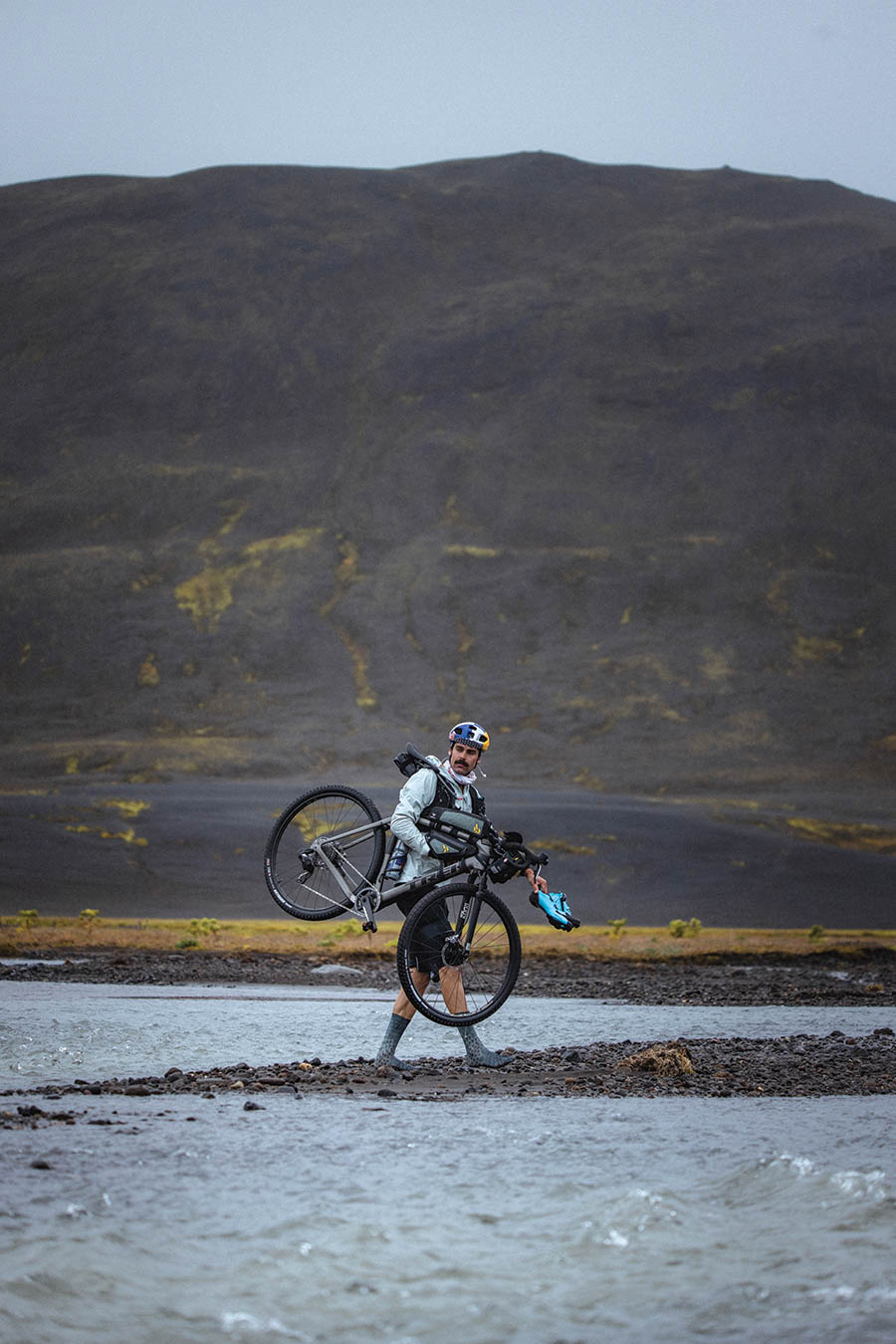
McElveen: Rarely do I come up with something totally on my own, and that was certainly the case this time. Chris Burkard, (a well-known American photographer), reached out to me and my fiancee and asked (if) we wanted to go on this trip in Iceland to bike tour a new route he’d put together in the Westfjords region. Besides the interior of Iceland, it’s the most sparsely populated coastal area. It’s dynamic and unbelievably beautiful. It feels like you’re on a different planet.
Because of (my) competition schedule, I was hesitant to do this 700-mile, multiple-day ride. It would make me pretty tired for the rest of the races that year. But he kept working on us… he knows if he can appeal to my competitive side, it can be beneficial. So he said, “What about trying to set a record on a different route while you’re there or trying to ride this section faster than anyone?”
To this day, I can’t remember whose idea it was or who had that eureka moment, but we thought, what if we just tried to ride from one coast to the other in under a day? Let’s see if it’s even possible.
AFM: How did you choose your equipment?
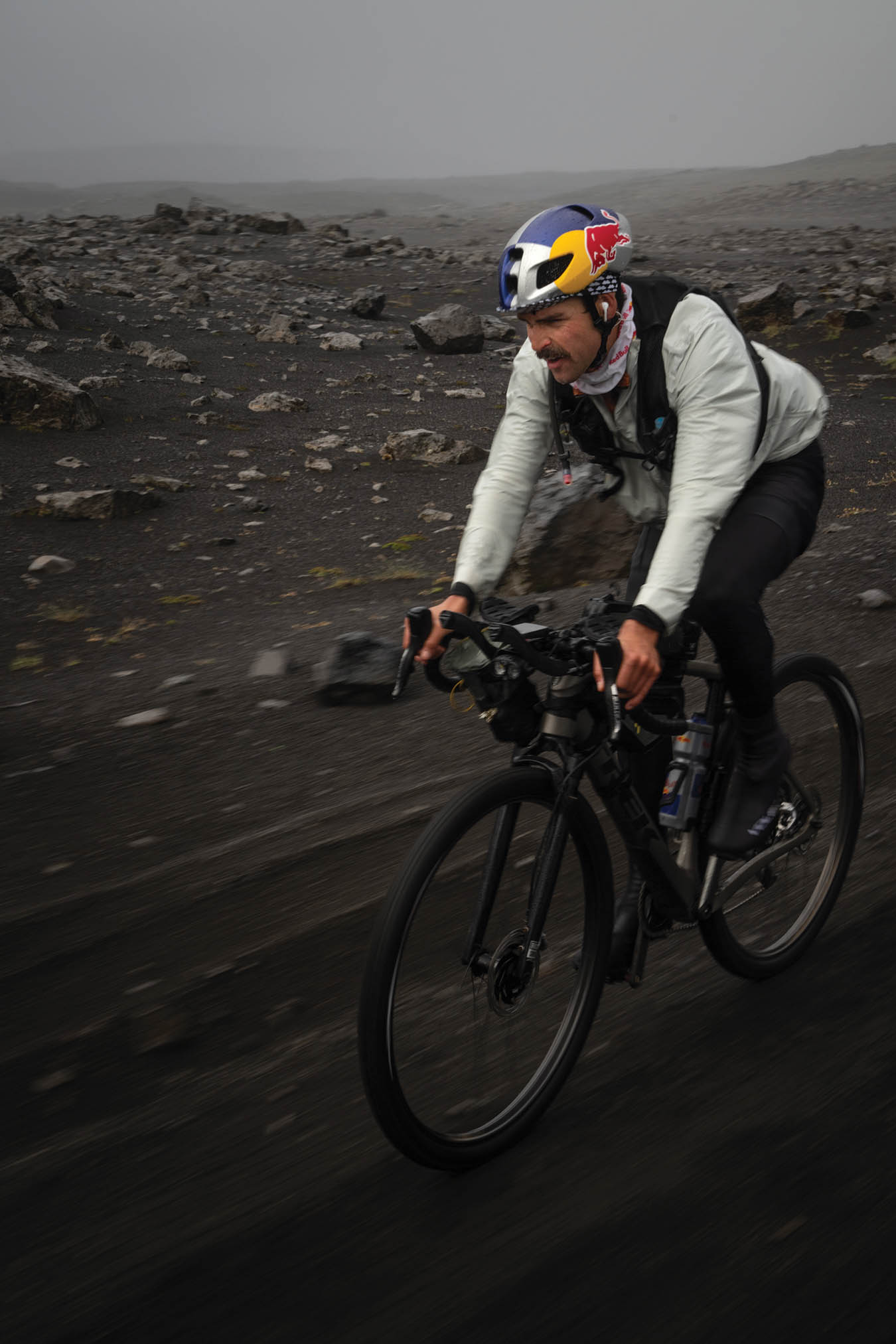
McElveen: The spirit of efforts like this (is) to limit the amount of interaction between the athlete and crew, because I’m doing what’s called “self-supported.” I started with all the food I needed because there are no gas stations, grocery stores, nothing in the interior, so I had to carry 24 hours’ worth of food and some water treatment tablets. The idea was to do the ride as if I was 100% alone.
Osprey (is) one of my sponsors. They have this cool hydration pack called the Duro 1.5L that is basically a little hydration bladder and it has some storage. I carried that. I also had a few small bags on my bike, which is typical for ultra-distance rides.
It seems like every year, bikes get more specific and specialized. Between mountain and road bikes are now what people are calling gravel bikes. I put together this crazy, almost Frankenstein bike that was a hybrid of the hybrid. It was a gravel bike, but I had a suspension fork on it because it was going to be rough. Then, I put even wider tires on it than is typical (and) “arrow bars.” That was less because of the speed, because the speed was not very high, and more just hiding from the wind. Over the course of 20 hours, that makes a big difference.
AFM: How did you stay fueled for 20 hours?
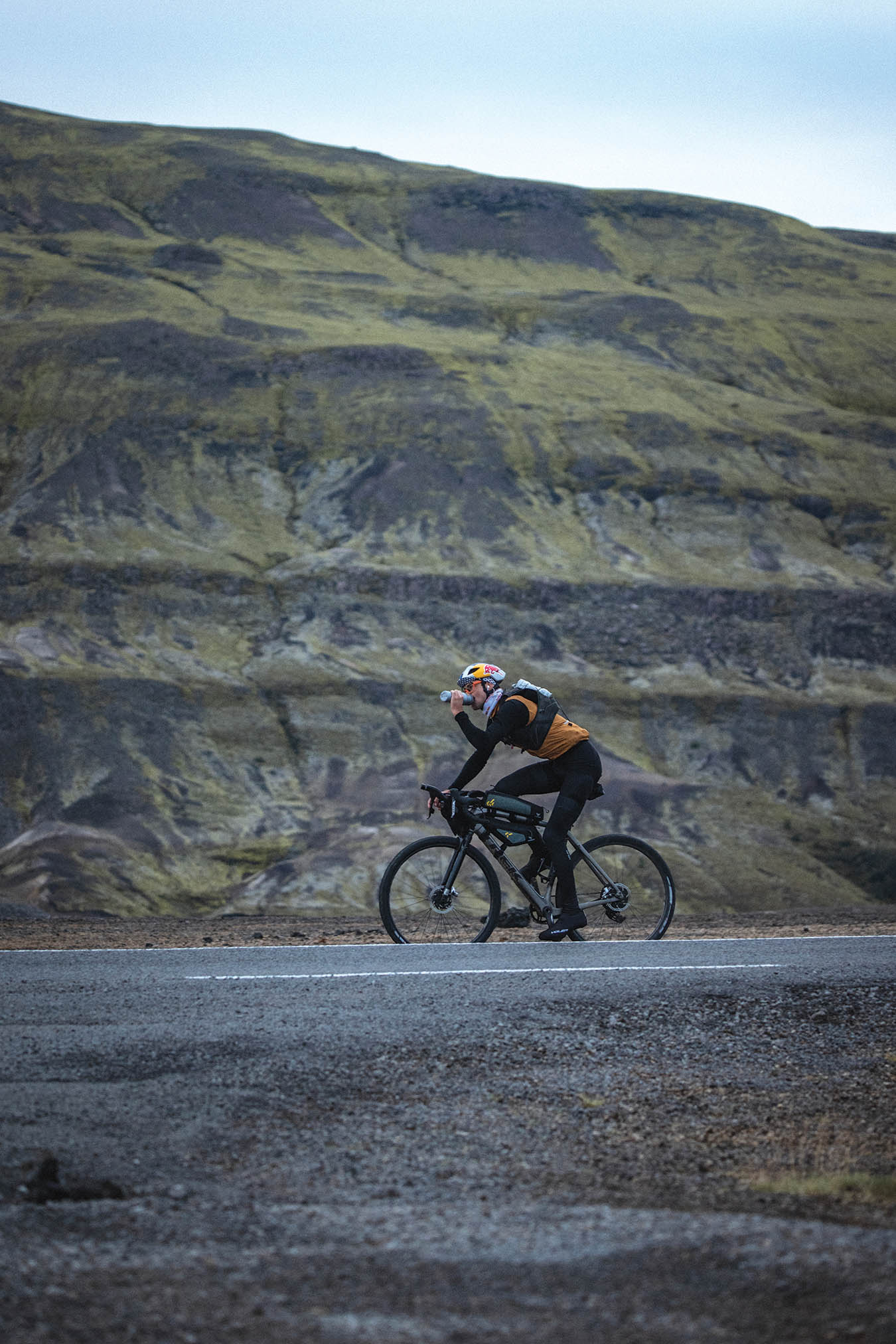
McElveen: When you’re riding that hard, from a physiological standpoint, you actually can’t eat enough. Your body can’t process calories quickly enough, so you’re always working at a deficit — you’re burning faster than you’re putting in. The trick is to eat 200 to 300 calories of food an hour. Loads of carbs. Diversity is also important. I had traditional ride food like bars, gels and chews, but I also carried mini pizzas, croissants, cinnamon rolls and Rice Krispies Treats.
As soon as you get hungry in the middle of an effort, your blood sugar has dropped so much that you’ve run out of carbohydrate stores and you’re now switching to fat metabolism. You go a lot slower; you can’t burn fat as fast. The trick is to never get hungry. Not eating could spell the end of the ride. I ended up with two bars and a handful of gummy bears left. Three more hours, and I would’ve been completely without food.
AFM: What motivates you to push through rides like this?
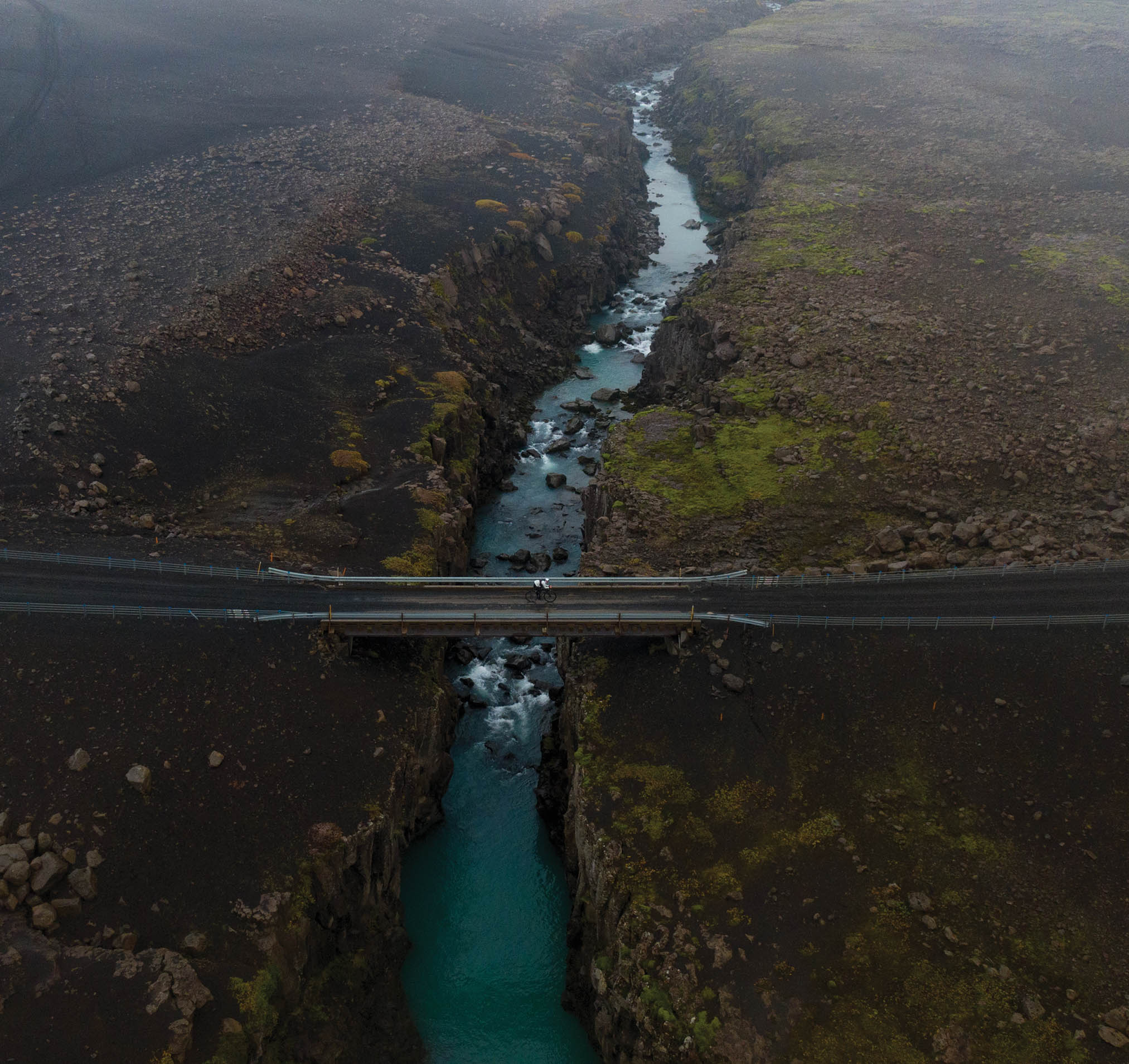
McElveen: Efforts like this require you to face things and get in touch with yourself in a way that wouldn’t happen otherwise. It’s a constant rollercoaster of wanting to give up, being inspired and remotivated, and being on top of the world. There will be sideways rain and headwind for five hours straight, and you’ll question everything. Then, that will disperse, there will be a double rainbow and you’ll have a tailwind and feel amazing again.
The folks (who) become successful are able to control what happens in their head. It becomes way less about the physical and more about the mental. The thing that helps me is reverting to gratitude. Being thankful for the opportunity, for being healthy and for having the fitness I’ve worked so hard to have — just being in the place, getting the opportunity to see it and understanding it’s a once-in-a-lifetime opportunity.
